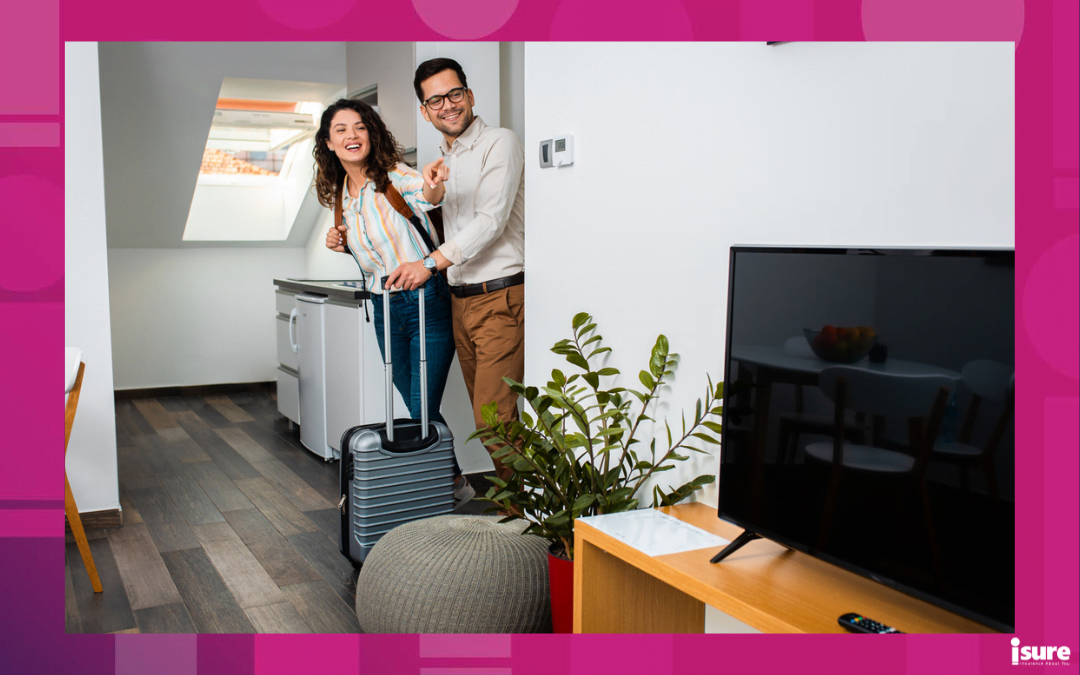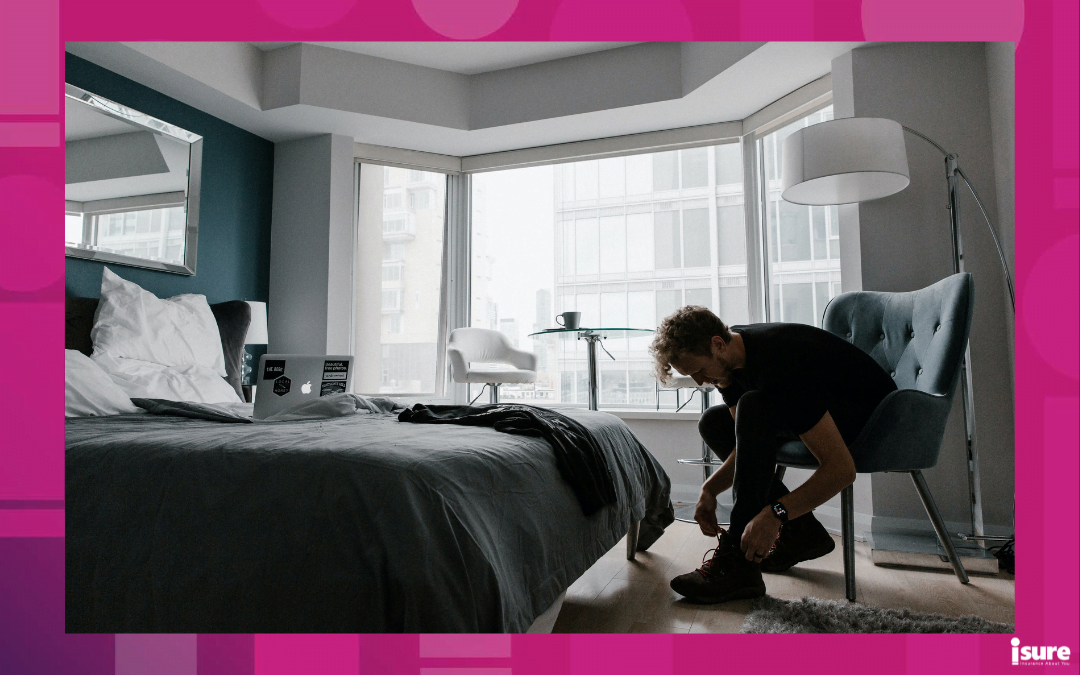In Ontario, home-sharing is one of the fastest growing sectors in the sharing economy. The growth of home sharing in Ontario, and around the world, has been driven by consumers looking for greater choices, flexibility and lower costs, and the opportunity to earn extra income for hosts. In this article, we will breakdown what constitutes home sharing, the need for short-term rental insurance, and the best tips to protect your home while it is being rented.
What exactly is home sharing in Ontario?
While there is no consensus definition of home sharing, it is generally understood to refer to individuals renting out their residence, or part of their residence, for short periods of time. This is typically done through internet-based platforms, such as Airbnb and Vrbo. If you’re looking to make extra money by turning your house into an Airbnb listing, it’s important to understand that home sharing turns your home into a business property. You’ll need to manage the property by:
- Creating the listing
- Setting the price
- Taking photos
- Cleaning up
- Managing insurance
You’ll also need to protect your most significant investment from any risks that can cost you thousands of dollars as a result of listing your property on home sharing platforms.
Airbnb statistics across Canada
A research report conducted by McGill University examines this growing phenomenon in-depth. It is the first comprehensive analysis of Airbnb and home sharing platforms across the country. Airbnb activity in Canada spans the entire country. Here are some of the more key points uncovered in the report:
- Nearly half (46%) of all active Airbnb listings can be found in Montréal, Toronto or Vancouver. These three hosts earned over $1.8 billion (2018).
- Canada has an average Airbnb occupancy rate of 27% (2021).
- The top three cities are: Toronto, having the most active listings (42,742), Montreal (35,872), and Vancouver (12,463).
- Only 17% of total Airbnb revenues in Canada is generated by true home sharing, where the owner is present during the guest’s stay.
- One in every three units in Canada are being rented out for more than 90 days per year. This generates 71% of the total Airbnb revenues in the past 12-month period.
- Over the past two years, entire-home, multi-unit hosts are increasing at a much faster pace than single entire-home hosts. The revenues from this segment have been doubling from $71 million to $167 million. That’s a 134% increase!
- Canada’s Airbnb sector has the potential to contribute $85 million in consumer taxes and fees to the Canadian economy.
Do you need additional insurance home sharing in Canada?
You may have home insurance, but it does not cover home-sharing services, like Airbnb or Vacation Rentals by Owner (Vrbo). By creating an income property, you’re changing the terms of the contract with your home insurance provider. Speaking to them about your plans is a necessary step in setting up your home sharing policy. They will inform you if this new arrangement merely needs to be noted on your policy, or if home sharing will void your contract altogether.
What is AirCover for hosts?
If you are considering listing your property with Airbnb, it offers its hosts a product called AirCover for hosts. This coverage automatically provides some insurance coverage every time you rent out your property on Airbnb. AirCover for hosts includes $3 million in damage protection, which covers the cost of damage caused to the property by Airbnb guests. It also offers $1 million in third-party liability insurance, which covers you in case something goes wrong while your property is being rented out.
What is Short-Term Rental Insurance?
Short-term rental insurance, also referred to as Airbnb insurance, is home sharing insurance coverage offered by your insurance provider, not from Airbnb. Most insurance policies do not cover Airbnb rentals. If you offer short-term rentals, you will need insurance that is beyond your current policy. Insurance providers are warning anyone operating a short-term rental or thinking of getting in the business, to check their coverage. If you’ve insured a home as a private dwelling and are considering offering some rooms on Airbnb, you’re changing your risk profile. When your risk profile changes, that will affect how your insurance is underwritten. Short-term rental insurance provides you with specific coverages from threats related to renting, such as theft, vandalism and injuries to renters while on the property.
Do all home sharing services require insurance?
Most short-term rental platforms that require additional insurance. If you rent your property using any of these platforms, you should have extra insurance. Here are some of the home sharing platforms we can help you get insurance for:
- VRBO
- HomeAway
- Flipkey
- Turnkey
- Homestay
We may also be able to offer insurance products from other platforms. Please contact us to inquire if coverage is available.
If you are looking into renting out a room in your home on a more permanent basis, have a look at our article, “How to rent out a room in your home.”
How to protect your Airbnb property
Home sharing units, found on platforms like Airbnb, are meant to help you generate income. If you are going to leave your most expensive asset in the hands of others, make sure that you take the proper steps to protect your property. You can protect your investment by ensuring you take these steps:
- Make sure you abide by all municipal, provincial, and federal regulations.
- Have a list of house rules you expect all guests to follow.
- Do not leave valuables or personal items in the unit.
- Install a security system.
- Use smart locks to secure your residence, and make it easier to transition between guests.
- Change passwords regularly (Wi-Fi, garage, smart locks, alarm systems).
- Create a home inventory list of all contents in your unit(s).
- Leave a guidebook to provide guests with instructions on how to use electronics and appliances.
- Perform regular maintenance to avoid potential hazards.
- Offer non-smoking properties only.
- Add an Airbnb security deposit to your listing.
- Invest in a lockable mailbox to help prevent identity fraud from occurring.
- Check the credentials of potential guests. You can explore their profile, and check references to discover whether they are the sort of renters you want to welcome into your home.
If you are considering occasionally renting your home or condo to guests through Airbnb, VRBO, HomeAway or other home sharing services, you’ll need a customized rental insurance policy. Short-term rental insurance will protect yourself and your property against unforeseen events and third-party liability. Our isure brokers can help put you in touch with our insurance partners that offer short-term rental insurance coverage. Call us today to learn more about the coverage you may need to have for home sharing.




